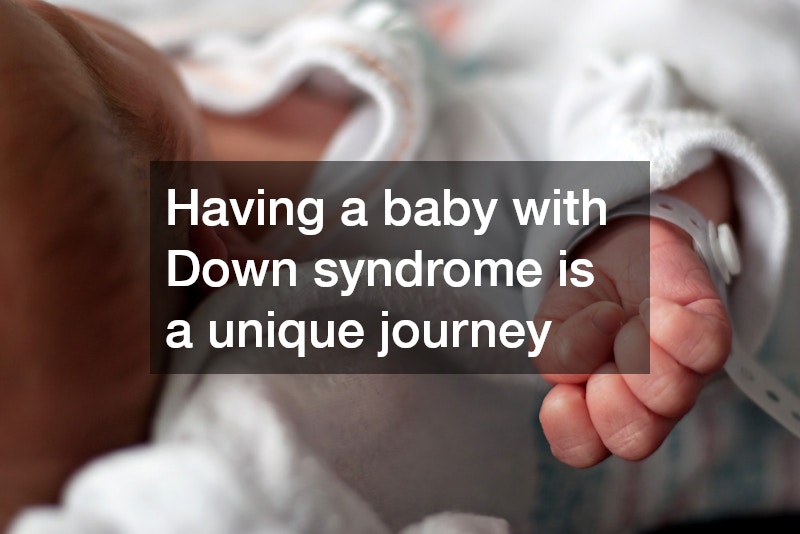Having a baby is a transformative experience, one that brings a unique mix of joy, excitement, and the inevitable challenges that come with welcoming a new life into the world. However, when you learn that your newborn has Down syndrome, it can stir up a whirlwind of emotions, questions, and sometimes even uncertainties. The diagnosis may feel overwhelming at first, but it’s important to understand that a baby with Down syndrome is still a baby—full of potential, love, and opportunities for growth. Having a clear understanding of what it means to raise a child with Down syndrome is vital for parents, caregivers, and families.
It helps foster a sense of preparedness, offering guidance on how to navigate the journey ahead with confidence, optimism, and knowledge. In this article, we aim to provide practical information, valuable insights, and emotional support, helping you embrace this new chapter in life with strength and understanding, while also celebrating the unique gifts that come with raising a child with Down syndrome.
Understanding Down Syndrome
Down syndrome is a genetic condition that occurs when an individual has an extra copy of chromosome 21, resulting in three copies instead of the usual two. This extra genetic material impacts the development of the brain and body, leading to a range of physical, cognitive, and sometimes emotional challenges. The presence of an additional chromosome can influence both the pace of development and the way a child’s body and mind function. However, it’s important to remember that every child with Down syndrome is unique. Each has their own personality, abilities, and potential. While they may face challenges in areas such as speech, motor skills, and learning, many children with Down syndrome also possess strengths, including a loving nature, a great sense of humor, and the ability to form deep connections with others. Understanding Down syndrome allows parents and caregivers to provide targeted support and care, empowering children to thrive. Medical professionals, therapists, and specialists are essential resources to guide families through the diagnosis and beyond, offering advice and interventions that help children reach their full potential. By staying well-informed and proactive, families can make the best decisions for their child’s development and well-being.
The Importance of Early Intervention
Early intervention is pivotal in supporting children with Down syndrome. Programs tailored to this condition focus on improving physical, speech, and cognitive development in the early years. By engaging in these services, parents can help their children reach important milestones. It’s evidenced that the sooner intervention begins, the more significant the impact on the child’s development. These programs often involve a team of therapists, including speech, occupational, and physical therapists, who work collaboratively with families.
Health Considerations
Children with Down syndrome may experience various health-related issues, requiring regular medical attention. Some common conditions include heart defects, respiratory problems, and hearing impairments. Regular check-ups with healthcare providers ensure these issues are addressed promptly. Understanding the specific health needs and potential challenges can help in providing appropriate care. Moreover, maintaining a balanced diet and regular exercise are vital components of a healthy lifestyle for children with Down syndrome.
Building a Support System
Having a strong support system is invaluable for parents of children with Down syndrome. Connecting with other families and caregivers in similar situations can offer emotional support and practical advice. Joining communities or support groups provides a platform to share experiences and resources. Schools and local organizations may offer support services aimed at fostering inclusive environments. Remember, you are not alone on this journey, and building a network of support can make a significant difference.
Celebrating Achievements and Milestones
Every milestone reached by a child with Down syndrome is cause for celebration. Parents should cherish each accomplishment, no matter how small, as it represents a step forward in their child’s growth. Encouragement and positive reinforcement play crucial roles in boosting confidence and promoting independence. Celebrating achievements helps in creating a nurturing and supportive environment for the child. These moments not only bring joy but also underscore the potential and capabilities inherent in every child with Down syndrome.
Having a baby with Down syndrome is a unique journey, one that is filled with both challenges and incredible rewards. As parents, the more you understand the condition, the better equipped you are to provide the support and care your child needs. Engaging in early interventions, such as therapy and special education, can make a significant difference in a child’s development. Building a strong and reliable support system—whether through family, friends, or professional networks—is essential in helping you navigate the challenges that come with raising a child with Down syndrome. Proactively addressing health concerns, working closely with healthcare providers, and making sure your child’s needs are met are all crucial elements. Celebrating each milestone, no matter how big or small, helps you stay positive and motivated. With love, knowledge, and support, families can create a fulfilling, meaningful, and joyful life for their child. Remember, embracing this journey is not just about overcoming obstacles—it’s about discovering the many possibilities for happiness, growth, and connection that come with raising a child who will undoubtedly enrich your life in ways you never imagined.
.



